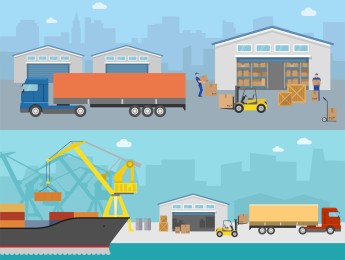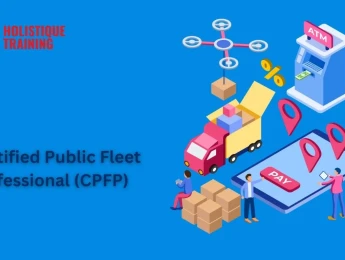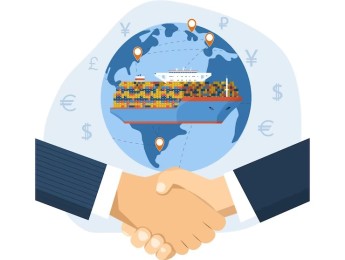Running a successful freight operation requires understanding the trade of products and applying best practices to processes. You will need to generate mutually beneficial relationships with warehouses, government agencies, and packing companies and develop a greater knowledge of supply chain risks, how to mitigate them, and when to avoid them.
To fully appreciate the transfer process's importance within a financial business model, you will need to gain an understanding of cargo planning and forwarding, the most optimum trade routes for return on investment, and the ins and outs of employing a motivated and manageable freight team to travel, arrange delivery and collection, and present an organised and positive operational approach.
Upon completion of this course, participants will be able to:
- Understand international freight logistics.
- Develop a framework for the most cost-effective freight routes.
- Create an action plan to motivate a team.
- Optimise working processes to maximise productivity.
- Devise an effective training program for prospective employees.
- Identify supply chain risks and mitigate them.
- Analyse key opportunities and be proactive.
- Improve the operational structure to bring in more profit.
This course is perfect for people who intend to improve their operational structure within freight management or people new to the freight industry who want to develop their understanding of supply chains. It would be especially beneficial for:
- Logistics Managers
- Operations Managers
- Business Owners
- Operational Directors
- Planning Managers
- Freight Managers
- Supply Chain Managers
This course uses a variety of adult learning styles, including trainer-led seminars, to help students understand freight management's role in the operational delivery of goods.
You will benefit from real-life financial models, see how budgeting can affect trade, and work as a team to create the most cost-effective freight management framework based on case studies.
Day 5 of each course is reserved for a Q&A session, which may occur off-site. For 10-day courses, this also applies to day 10
Section 1: Planning & Logistics Management
- Your role in the supply chain.
- TOC - Theory of Constraints.
- Creating a warehouse framework.
- Developing beneficial relationships with partners.
- Your packing reliability and consequences of damage.
- What does good look like, and how do you get there?
Section 2: Resourcing & Recruitment
- Your operation size and how to staff it.
- Recruiting and promoting from within to maintain experience levels.
- Setting Key Performance Indicators to work towards your goals.
- Setting goals for your employees.
- Identifying underperformance and how to manage it.
- Mastering effective communication remotely.
Section 3: Cargo & Freight Forwarding
- Understanding freight terminology.
- The proper transport for your goods.
- Transport documentation for travel.
- Effective organising of your freight and employees.
- Carrier services and characteristics.
- Create manageable systems to record your journeys.
- Auditing and accurate record keeping.
Section 4: International Trading
- Commercial terms of international transportation.
- Containers - benefits and flaws.
- Planning for lead time.
- Customs rules and regulations.
- Buying the correct tools for overseas travel.
- Selecting the right equipment at the best cost.
Section 5: International Contracts - Importing & Exporting
- Developing effective relationships.
- Negotiation to achieve a mutually beneficial outcome.
- The implications of freight terms.
- Blue sky decision making - what are you trying to achieve?
- Hazards and how to handle them.
- The correct documentation to cover you for all eventualities.
Section 6: Supply Chain Risk & Risk Mitigation
- The supply chain risk spiral and its implications.
- The consequences of accepting risk.
- The key drivers of risk.
- Reviewing practices and making changes to increase profits and productivity.
- Obtaining feedback from suppliers and clients.
Section 7: Laying Foundations for the Future
- Introducing new systems - what works and what doesn’t?
- Improving visibility of the route structure and your employee activities.
- Restoring confidence when things go wrong.
- Growing your freight while maintaining quality.
- Reducing variation in planning, packing, routing, and service.
- Generate your new freight framework to move forward.
Upon successful completion of this training course, delegates will be awarded a Holistique Training Certificate of Completion. For those who attend and complete the online training course, a Holistique Training e-Certificate will be provided.
Holistique Training Certificates are accredited by the British Assessment Council (BAC) and The CPD Certification Service (CPD), and are certified under ISO 9001, ISO 21001, and ISO 29993 standards.
CPD credits for this course are granted by our Certificates and will be reflected on the Holistique Training Certificate of Completion. In accordance with the standards of The CPD Certification Service, one CPD credit is awarded per hour of course attendance. A maximum of 50 CPD credits can be claimed for any single course we currently offer.
- Course Code PO1-103
- Course Format Classroom,
- Duration 5 days














